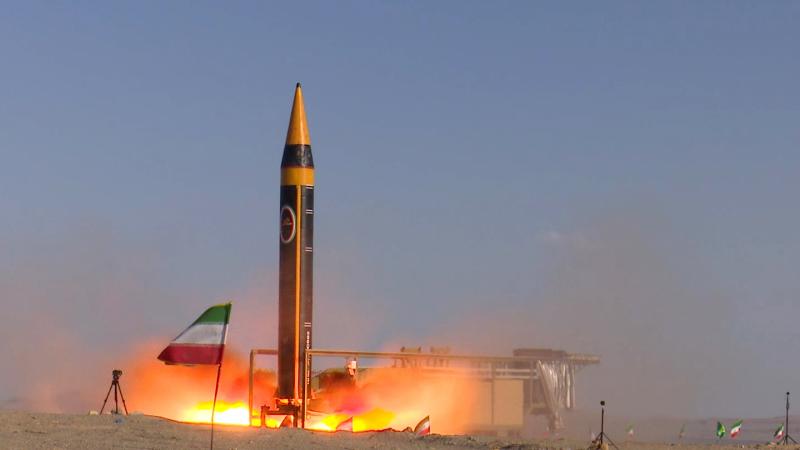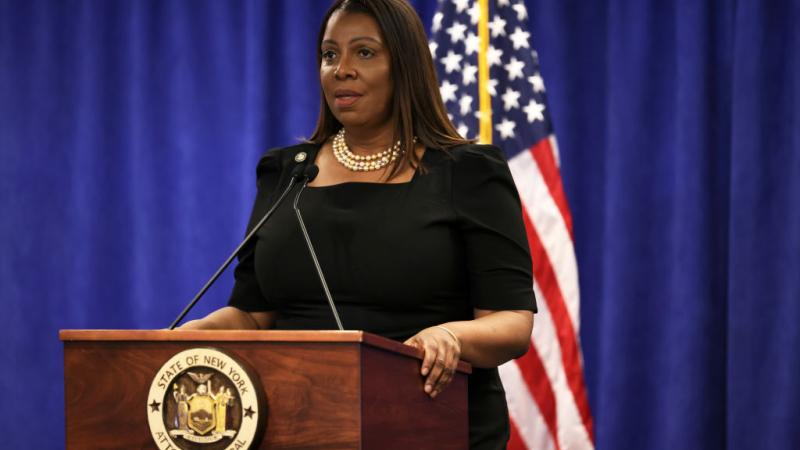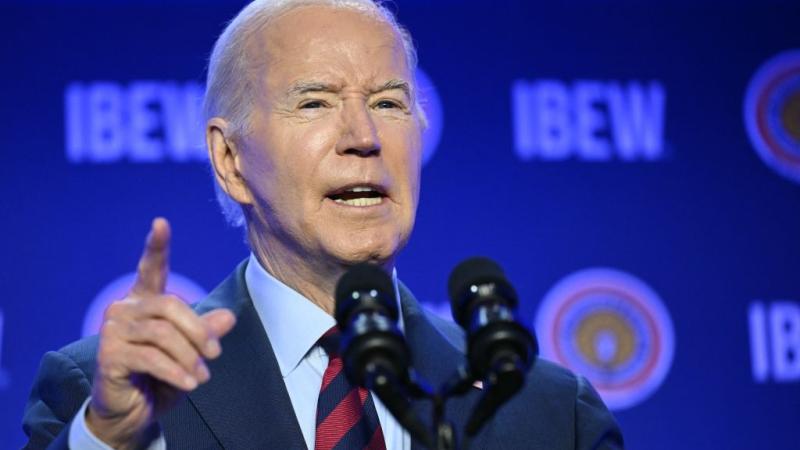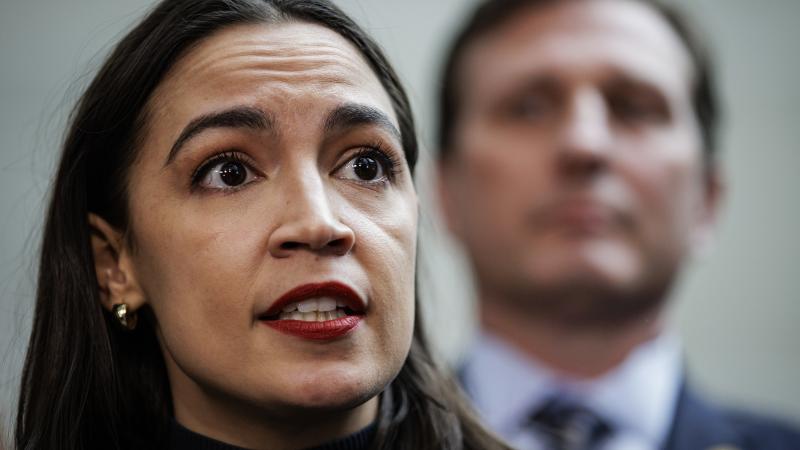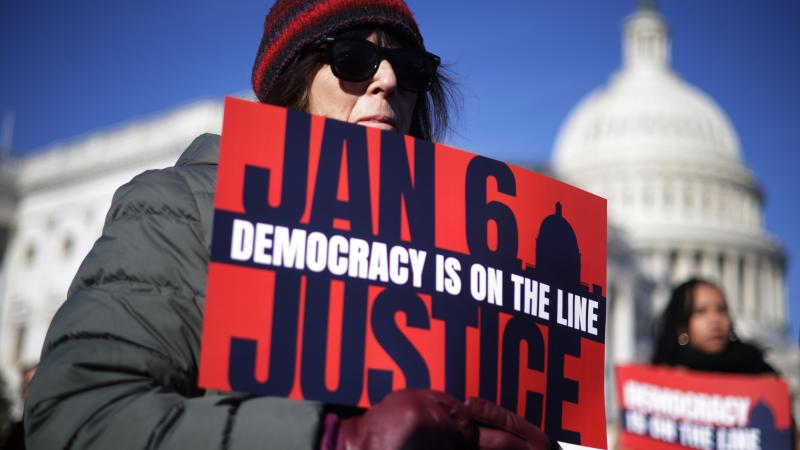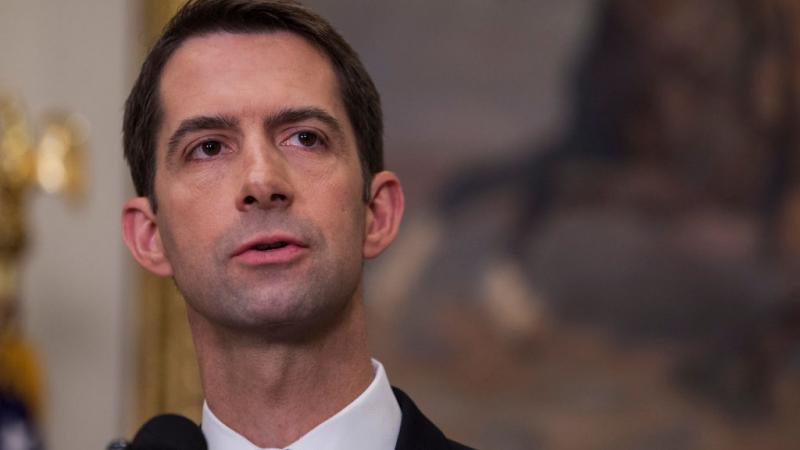Republicans, Israel increase pressure against Biden moves to reset relations with Iran
Dozens of Republicans have called on Biden to keep sanctions in place, as counteroffensive also targets companies tempted to do business with Tehran.
A growing number of leaders from Israel to Congress are increasing pressure on corporate America and President Biden to avoid making a bad deal with Iran that would lift sanctions or provide cash aid to Tehran without major concessions to end its terrorism, nuclear and other malign activities.
The pressure campaign comes after the Biden administration revealed in February its intent to enter into talks with Iran to return to the Obama era-nuclear deal known as the Joint Comprehensive Plan of Action and to lift sanctions imposed by the Trump administration after it withdrew from the JCPOA.
The counteroffensive began in February, when nearly three dozen Republicans cosponsored a Senate resolution "opposing the lifting of sanctions imposed with respect to Iran without addressing the full scope of Iran's malign activities, including its nuclear program, ballistic and cruise missile capabilities, weapons proliferation, support for terrorism, hostage-taking, gross human rights violations, and other destabilizing activities."
The resolution ultimately stalled in the Senate as Democratic leadership left it by the wayside and high-profile GOP senators like Lindsey Graham and Rand Paul refused to sign onto it. Yet in the months since that resolution other GOP politicians on Capitol Hill have continued to push the Biden administration to refrain from renegotiating with Iran.
In early April, four Republican senators including Marco Rubio and James Inhofe said in a letter to Biden that the U.S. "must not relinquish its leverage over the Iranian regime just to return to the JCPOA, a severely flawed agreement that undermines our national security interests due to its arbitrary sunsets and limited scope."
The current pressure on Iran, they wrote, "include[s] sanctions that Democrat and Republican administrations have implemented to punish the Iranian regime for its support for terrorism, nuclear enrichment program, and ballistic missile program."
"The current sanctions in place provide your Administration with an enormous amount of leverage over the Iranian regime and they should be used as a tool to address all aspects of Iran's destabilizing behavior," they argued further.
In the House, meanwhile, Republicans this month introduced the Maximum Pressure Act, legislation that Indiana Rep. Jim Banks called "the toughest sanctions bill on Iran ever proposed by Congress," one that "codifies into law the Trump administration's successful maximum pressure campaign on Iran."
International opposition also continues to mount as a delegation of Israeli diplomats meets this week with U.S. officials in Washington to discuss the Biden administration's ambitions. Israeli Prime Minister Benjamin Netanyahu reportedly has instructed his delegation to oppose returning to the pre-Trump status quo ante of U.S.-Iranian relations.
Iranian sanctions are a perennial topic in Washington, with multiple administrations enacting, dismissing, strengthening or weakening those measures based upon Iran's perceived threat as a potential locus of terrorist activity, including nuclear activity.
The biggest change in U.S.-Iran relations came with the Obama-era agreement struck by the U.S. and several other countries.
The deal was first agreed to in 2015 by the United Nations Security Council's P5+1 group. It stipulated several strict conditions by which Iran could conduct its nuclear program in the near future; in exchange, numerous sanctions on Iran were lifted, leading to at least tens of billions of dollars flowing into the country.
Trump in 2018 announced the U.S.'s withdrawal from the JCPOA, calling it "a horrible one-sided deal that should have never, ever been made."
The Trump administration followed the withdrawal by imposing numerous new sanctions on the country, a decision which led Iran to break the terms of the 2015 deal and compile nuclear fuel beyond the limits set by that agreement.
The Biden administration has taken its first cautious steps toward restoring the JCPOA, although engagement with Iran has been limited and tense.
Meanwhile, various businesses across the world have also attempted to put economic pressure on Iran by refusing to do business within its borders, particularly after the U.S.'s 2018 withdrawal from the deal.
Others are highlighting companies that continue to do business with Iran in hopes of shaming them.
The Foundation for Defense of Democracies, a nonpartisan think thank, in 2018 identified multiple multinationals that vowed to stay in Iran following the fracturing of the JCPOA, including an Austrian compressor firm, two German corporations and two Italian energy concerns. Nearly half a dozen Chinese corporations also said they would stay, the most of any country.


